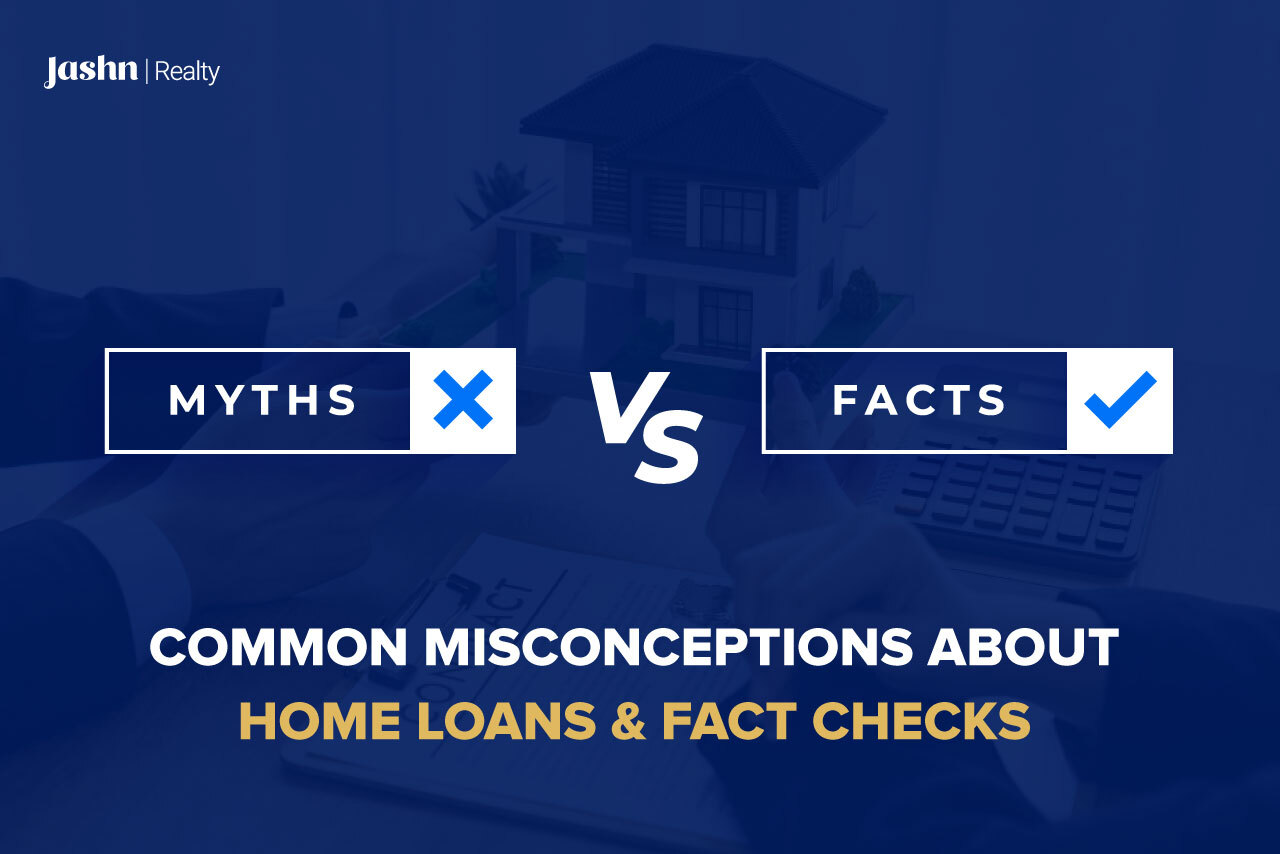Thanks to home loans, many people have realized their dream of owning a home. It’s a common financial decision and pathway that guides people in their financial well-being. However, there are many misconceptions associated with home loans. Such myths may lead you to miss certain perks or even cause financial burdens. So, we have created a list of myths and fact checks side by side to provide you with the right information.
Let’s check it out.
Common myths about home loans:
1. Home loans with fixed rates are the best options
One common myth that is deep rooted in homebuyers is that fixed rate loan options are the best. Fixed rate loans have a steady and constant interest rate throughout the repayment tenure. However, they usually have a higher interest rate as compared to other payment options.
Fact checks
Home loans with floating interest depend on market conditions. The fluctuation allows homebuyers to get lower rates over the years. However, the fluctuation rates have remained stable below 10%, which makes it a little less expensive than fixed-rate loans. It would help if you consider any of these loan rates based on your financial objectives.
2. Floating interest rates impact home loan EMIs
Another misconception about home loan is that the floating interest rates can change the equated monthly installments. Let’s fact check it.
Fact checks
The EMI amount remains the same even with the floating interest rates. It works interchangeably. For example, when the rates fluctuate, EMI goes towards the principal. However, when it goes higher, the EMI goes towards the interest rates. If you want to change or lower your EMI amount, choose a balance transfer or opt for partial payment. Whichever option you choose, it impacts your EMI.
3. You can get tax benefits only on ready-to-move properties
In real estate, a common myth is that buyers can get income tax benefits only on ready-to-move projects. Under-construction properties do not offer any tax benefits. Those who are planning to buy a flat in Lucknow or any other part of India must fact check it below.
Fact checks
Besides ready-to-move properties, you can avail of tax benefits on under-construction projects, too. After taking possession of the property, you can claim the tax deductions on its interest in five equal EMIs. This works the same way the tax benefits work for ready-to-move properties.
Tax benefits are available for under-construction properties as well. You can claim deductions on the pre-construction interest in five equal instalments after taking possession of the property. This provides tax benefits similar to those for ready-to-move properties.
Home loan insurance is obligatory
It is said that home loan insurance is an obligatory term need. You need to take the insurance along with your home loan.
Fact checks
It is not obligatory to take home loan insurance. However, RBI recommends that every homebuyer must consider it to avoid unforeseen circumstances and enable their family members to pay it back in such conditions.
Home loan interests are non-negotiable
It is a deep-rooted misconception that home loan interest rates are non-negotiable. Buyers think that whatever rates lenders offer is fixed and they can’t get a bargain.
Fact checks
Interest rates offered by banks are negotiable. If you aren’t happy about it, you always have the chance to negotiate it with the lender. But the catch is if you have a good financial record and credit score, you can ask the lender for negotiations. It is possible that banks will lower their rates for borrowers with good credit histories.
Home loan prepayment attracts heavy charges/penalties
Many homebuyers have the misconception that prepaying their home loan will incur heavy penalties.
Fact checks
Prepaying your home loan doesn’t attract heavy penalties. But some banks may charge you for prepaying the home loan if the moder of repayment is balance transfer. The charges may vary as per the bank’s terms and conditions. It may go from 3% to above as per their guidelines.
Conclusion
Ignoring myths and knowing the facts helps you make a well-informed decision. If you are a first-time buyer, consider paying off your loan early and exploring other options that fall within your budget.







